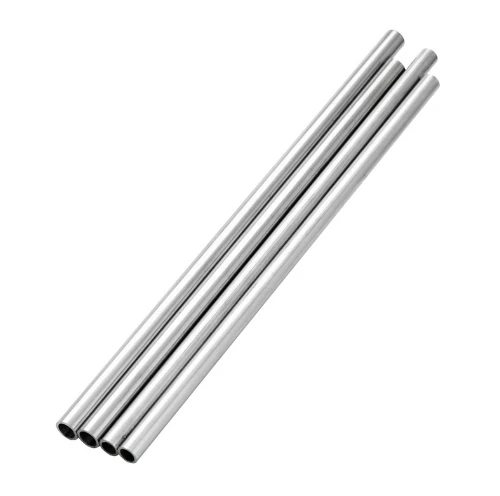Innovative Applications of Rolled Steel Tubes in Modern Engineering Solutions
Nov . 30, 2024 23:41
The Evolution and Importance of Rolled Steel Tubes
Rolled steel tubes have become a fundamental component in various industries, marking a significant transformation in the way structures are designed and built. This article explores the properties, manufacturing processes, and applications of rolled steel tubes, highlighting their vital role in modern engineering and construction.
What are Rolled Steel Tubes?
Rolled steel tubes are hollow cylindrical structures formed by rolling steel into the desired shape. This manufacturing process allows for the creation of strong and lightweight tubes that are ideal for a multitude of applications. The versatility of rolled steel tubes stems from their ability to withstand high levels of stress and strain, making them as vital as they are functional.
Manufacturing Process
The production of rolled steel tubes involves several steps. Initially, steel slabs or billets are heated to a malleable state. Once the steel reaches the appropriate temperature, it is passed through a series of rollers that shape it into a tube. This process can be performed using either a seamless or a welded method.
Seamless tubes are produced by piercing a solid billet to create a hollow tube. This method results in a higher strength-to-weight ratio, making seamless tubes an attractive option for high-pressure applications. On the other hand, welded tubes are formed by rolling flat steel sheets and welding the edges together. This approach often results in significant cost savings and is suitable for many general applications.
Properties of Rolled Steel Tubes
rolled steel tube
Rolled steel tubes exhibit several inherent properties that contribute to their widespread use. They possess high tensile strength, excellent durability, and resistance to corrosion when coated properly. Additionally, steel tubes are easily fabricated and can be subjected to various finishing processes to achieve desired surface qualities. These attributes make them suitable for environments subject to extreme conditions, such as heavy machinery, chemical processes, and construction.
Applications of Rolled Steel Tubes
The applications of rolled steel tubes are diverse and far-reaching. In the construction industry, they are commonly used for structural support in buildings, bridges, and towers. Their lightweight nature combined with high strength makes them an efficient choice for reducing material costs while ensuring the stability of structures.
In the automotive industry, rolled steel tubes are essential for manufacturing components such as frames, exhaust systems, and pipelines. The energy sector also heavily relies on these tubes for transporting oil and gas, where high-pressure resistance is crucial. Furthermore, rolled steel tubes find usage in the manufacturing of furniture, sports equipment, and industrial machinery.
The Future of Rolled Steel Tubes
As technology advances, the future of rolled steel tubes looks promising. Innovations in materials science are paving the way for the creation of advanced steel alloys that offer enhanced properties for specific applications. Moreover, the rise of sustainability in manufacturing processes is driving the industry toward producing rolled steel tubes that are both environmentally friendly and economically viable.
In conclusion, rolled steel tubes are an indispensable element in contemporary engineering and manufacturing. Their unique properties and versatile applications have cemented their status as a key material across various sectors. As industries evolve and the demand for innovative solutions grows, rolled steel tubes will undoubtedly continue to play a pivotal role in shaping the future of construction and manufacturing.
 Afrikaans
Afrikaans  Albanian
Albanian  Amharic
Amharic  Arabic
Arabic  Armenian
Armenian  Azerbaijani
Azerbaijani  Basque
Basque  Belarusian
Belarusian  Bengali
Bengali  Bosnian
Bosnian  Bulgarian
Bulgarian  Catalan
Catalan  Cebuano
Cebuano  Corsican
Corsican  Croatian
Croatian  Czech
Czech  Danish
Danish  Dutch
Dutch  English
English  Esperanto
Esperanto  Estonian
Estonian  Finnish
Finnish  French
French  Frisian
Frisian  Galician
Galician  Georgian
Georgian  German
German  Greek
Greek  Gujarati
Gujarati  Haitian Creole
Haitian Creole  hausa
hausa  hawaiian
hawaiian  Hebrew
Hebrew  Hindi
Hindi  Miao
Miao  Hungarian
Hungarian  Icelandic
Icelandic  igbo
igbo  Indonesian
Indonesian  irish
irish  Italian
Italian  Japanese
Japanese  Javanese
Javanese  Kannada
Kannada  kazakh
kazakh  Khmer
Khmer  Rwandese
Rwandese  Korean
Korean  Kurdish
Kurdish  Kyrgyz
Kyrgyz  Lao
Lao  Latin
Latin  Latvian
Latvian  Lithuanian
Lithuanian  Luxembourgish
Luxembourgish  Macedonian
Macedonian  Malgashi
Malgashi  Malay
Malay  Malayalam
Malayalam  Maltese
Maltese  Maori
Maori  Marathi
Marathi  Mongolian
Mongolian  Myanmar
Myanmar  Nepali
Nepali  Norwegian
Norwegian  Norwegian
Norwegian  Occitan
Occitan  Pashto
Pashto  Persian
Persian  Polish
Polish  Portuguese
Portuguese  Punjabi
Punjabi  Romanian
Romanian  Samoan
Samoan  Scottish Gaelic
Scottish Gaelic  Serbian
Serbian  Sesotho
Sesotho  Shona
Shona  Sindhi
Sindhi  Sinhala
Sinhala  Slovak
Slovak  Slovenian
Slovenian  Somali
Somali  Spanish
Spanish  Sundanese
Sundanese  Swahili
Swahili  Swedish
Swedish  Tagalog
Tagalog  Tajik
Tajik  Tamil
Tamil  Tatar
Tatar  Telugu
Telugu  Thai
Thai  Turkish
Turkish  Turkmen
Turkmen  Ukrainian
Ukrainian  Urdu
Urdu  Uighur
Uighur  Uzbek
Uzbek  Vietnamese
Vietnamese  Welsh
Welsh  Bantu
Bantu  Yiddish
Yiddish  Yoruba
Yoruba  Zulu
Zulu 












